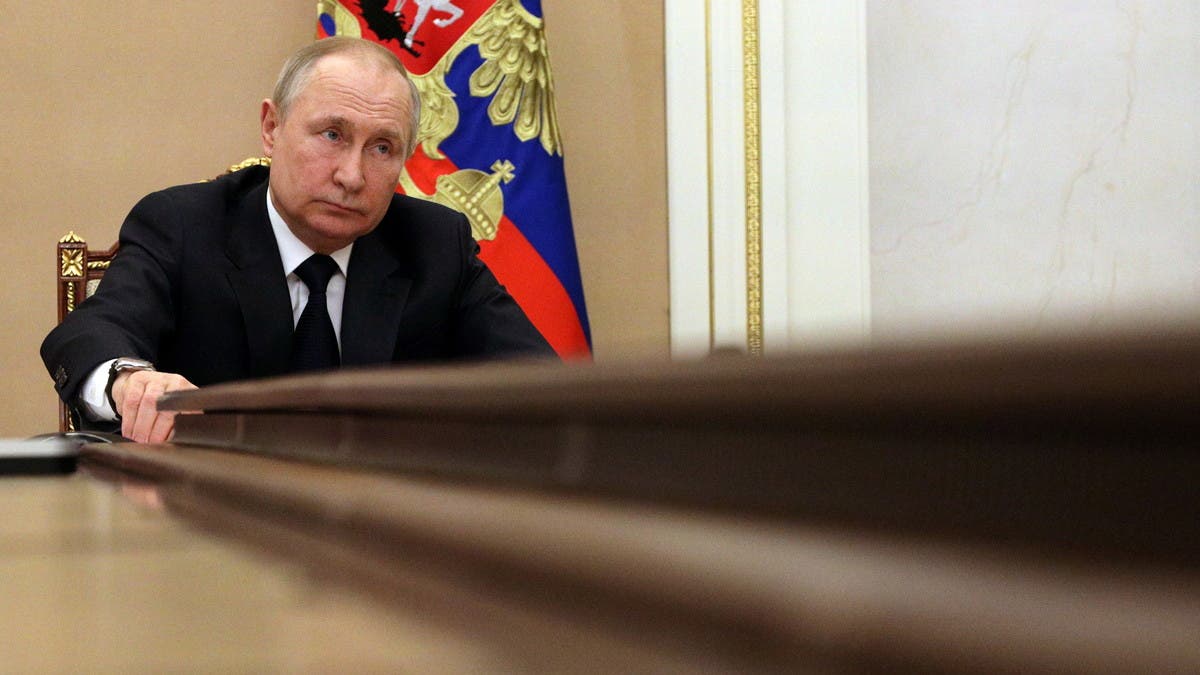As Vladimir Putin looks out from behind the Kremlin’s red walls, Russia’s paramount leader of 22 years has a riddle to solve: how to win a war in Ukraine that the West says he has already lost.
Three weeks into its invasion, Russia is battling fierce resistance from Western-armed Ukrainian forces. It has yet to achieve its stated aims and its heavily sanctioned economy faces the deepest crisis since the 1991 fall of the Soviet Union.
For the latest headlines, follow our Google News channel online or via the app.
Russia, where journalists risk jail if they use the term “invasion,” says its special military operation is going to plan and that despite sanctions it can fare well without what it casts as a deceitful and decadent West led by the United States.
Putin, who works from an office in the Kremlin’s 18th century Senate Palace, is expected to decide soon whether to press on with a war that has already killed thousands of people and displaced several million, or to seek some sort of peace that would allow him to claim victory.
“There is a small chance of a peaceful resolution,” one high-ranking Russian official told Reuters on condition of anonymity due to the sensitivity of the situation. “Something will be decided in the next three days to a week.”
A second senior Russian source said the president would consider a peaceful resolution on Russia’s terms and that there was a window of opportunity for some sort of agreement.
That could indicate a belief in the Kremlin that Russia can achieve many of its goals without a prolonged war in Ukraine.
Launching the invasion on Feb. 24, Putin listed his key aims as halting NATO’s eastward enlargement and ending what he called the “genocide” of Russian-speaking people by “nationalists and neo-Nazis” in Ukraine since Moscow’s 2014 annexation of Crimea.
Ukraine’s President Volodymyr Zelenskyy, who is Jewish and a native Russian speaker, and his Western supporters says Putin’s claims are baseless.
‘On pause’
Putin’s looming decision will shape the course of European history and determine how much more carnage Ukraine’s 44 million people will have to endure. It might also determine how long the former KGB spy remains as Russia’s president.
Putin said on March 11 there were some “positive shifts” in ongoing talks with Ukraine but gave no details. Zelenskyy said on Wednesday that the talks “sound more realistic,” and Russian Foreign Minister Sergei Lavrov said there was “some hope of reaching a compromise.”
A Russian military source said there had been a change in orders in recent days.
“Everything is on pause,” said the source, who also spoke on condition of anonymity. “There has been a clear change of tactics by our troops. The active advance has been halted.”
Attempts to take Kyiv and other major cities would mire Russian forces in bloody urban warfare against a population which views them as an occupying force.
Pushing far into western Ukraine would strain Russian logistics, and its forces do not need to control the whole of Ukraine to achieve most of Putin’s aims.
Partition?
From a Russian perspective, the contours of a compromise would have to include a significant loss of territory for Ukraine possibly totaling at least 120,000 square km – equivalent to the US state of Mississippi.
This would include Crimea, two Russian-backed rebel regions in eastern Ukraine and most likely swathes of other territory now held by Russian troops, notably that linking Russia to Crimea along Ukraine’s southeastern flank and maybe further west, sharply reducing Kyiv’s access to the Black Sea.
It is unclear how much territory – if any – Kyiv might be ready to surrender as part of the price for peace. It is also unclear what would happen to the people living in those affected areas. Most would probably not want to become Russian citizens, especially after such a devastating war.
At least publicly, Zelenskyy and his ministers say they would never accept Russia’s annexation of any Ukrainian land.
Besides partition, Russia wants a neutral Ukraine that has formally renounced any plan ever to join the NATO alliance.
Zelenskyy said this week Ukraine was prepared to accept security guarantees from the West that stop short of NATO membership.
Vladimir Medinsky, Russia’s chief negotiator in the talks, told Russian state television on Wednesday: “Ukraine is offering an Austrian or Swedish version of a neutral, demilitarized state, but at the same time a state with its own army and navy.”
Putin said on Wednesday that Russia remained open for talks on Ukraine’s neutrality and its demilitarization.
Kyiv’s chief negotiator, Mykhailo Podolyak, said a model of legally binding security guarantees that would offer Ukraine protection by a group of allies in the event of a future attack was “on the negotiating table.”
The United States has sounded more downbeat on the prospects for any swift end to the conflict.
US intelligence chiefs said on March 8 that Putin would intensify his assault on Ukraine despite the heavy cost in human life – including of Russian soldiers – and in sanctions which have effectively cut Russia off from much of the global economy.
“Putin is angry and frustrated right now,” William Burns, the Russian-speaking director of the Central Intelligence Agency who served as a US ambassador to Moscow, told the House of Representatives Intelligence Committee.
“He’s likely to double down and try to grind down the Ukrainian military with no regard for civilian casualties.”
Read more: US warns Russia about consequences of chemical weapons use in Ukraine

 World3 years ago
World3 years ago
 World3 years ago
World3 years ago
 Business1 year ago
Business1 year ago
 Entertainment7 years ago
Entertainment7 years ago
 World7 years ago
World7 years ago
 Entertainment7 years ago
Entertainment7 years ago






